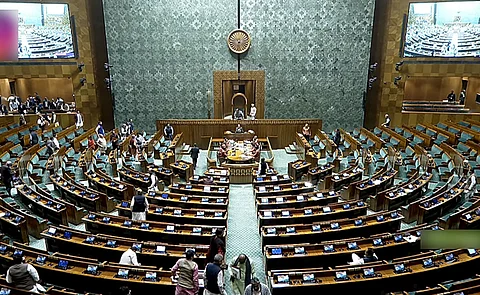
- Home
- Live Blog
- Breaking News
- Top Headlines
- Cities
- NE News
- Sentinel Media
- Sports
- Education
- Jobs

NEW DELHI: In a significant development, the BJP-led NDA government at the centre is mulling to overhaul the Waqf Act in order to revise the powers of the Waqf Board, as per sources.
Earlier on Friday, the Union Cabinet gave the nod to amend around 40 provisions of the Waqf Act.
According to the proposed amendments, the claims on properties made by Waqf Boards will be mandatorily verified and it will be applied to all the disputed properties of Waqf Boards.
It has also been speculated that a bill to amend the Waqf Act is likely to be introduced in Parliament next week.
Notably, Waqf Boards have approximately over 8.7 lakh properties spread across a huge swathe of land, totaling around 9.4 lakh acres.
The UPA government had given additional powers to the Waqf Boards by amending the original Act back in 2013. The Waqf Act, 1995, was enacted to regulate ‘auqaf’ (assets donated and notified as waqf) by a wakif—the person who dedicates a property for any purpose recognized by Muslim law as pious, religious, or charitable.
The proposed amendments intends to empower women by giving them representation in the Central Waqf Council and state boards.
These amendments will be very crucial as assembly elections in the states of Maharashtra, Haryana, and Jharkhand are approaching closer.
Earlier, the government had taken into cognizance the extraordinary powers of the state Waqf boards to stake claims on any property and the delays in surveying such properties in most states.
In addition to it, the government had thought about the idea of assigning district magistrates with the task of monitoring Waqf properties so as to prevent misuse of the assets.
Sources further revealed that loopholes in the appeal process were also under scrutiny. For instance, an appeal against a decision of the board lies with the tribunal, but there is no timeline for the disposal of such appeals.
The tribunal has the final word in these cases and there is no provision for appeal except under writ jurisdiction in high courts.
There are currently 30 Waqf boards across the country.
ALSO READ: Uttarakhand Cloudburst: Death Toll Rises to 17, Thousands of Stranded Pilgrims Rescued
ALSO WATCH: